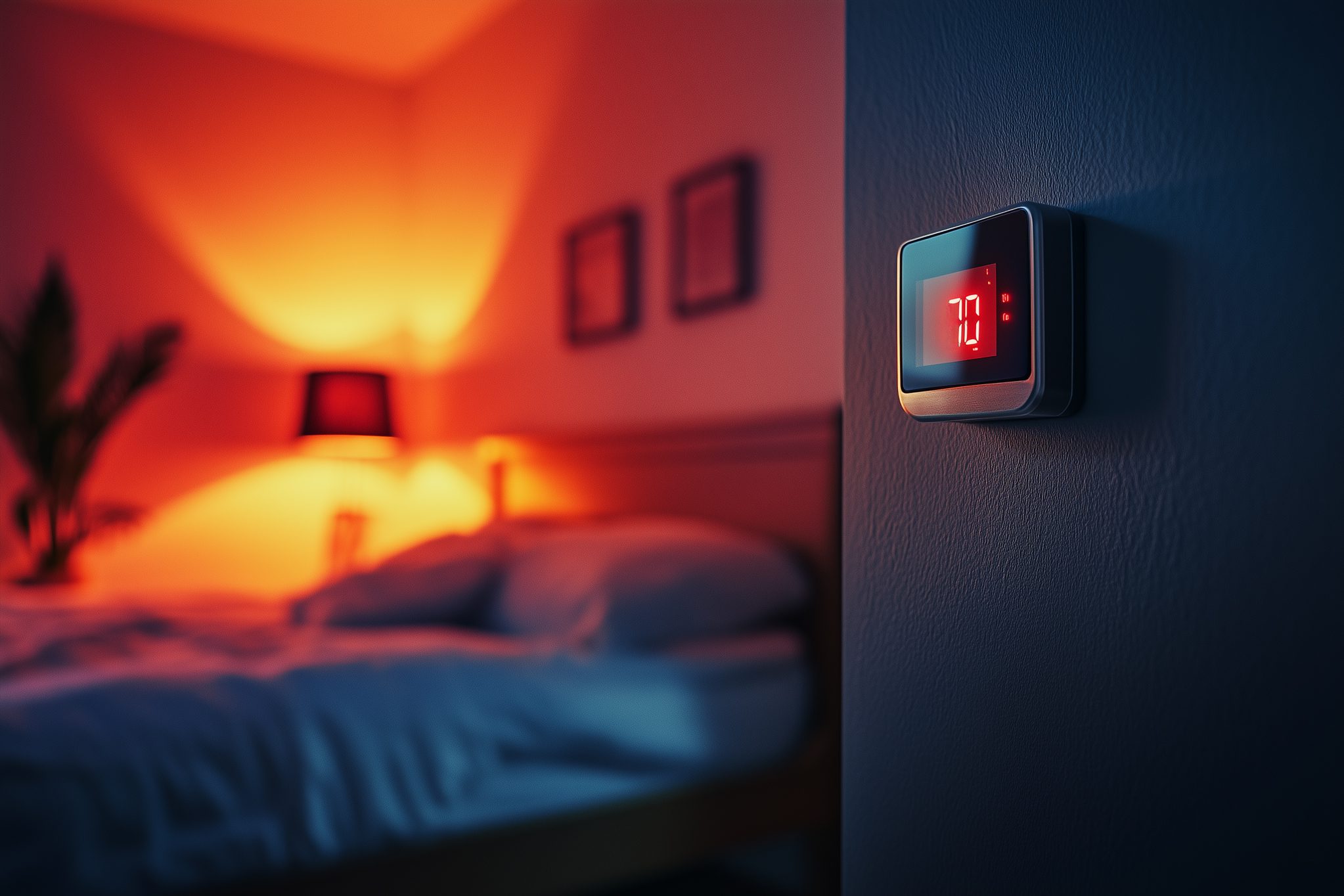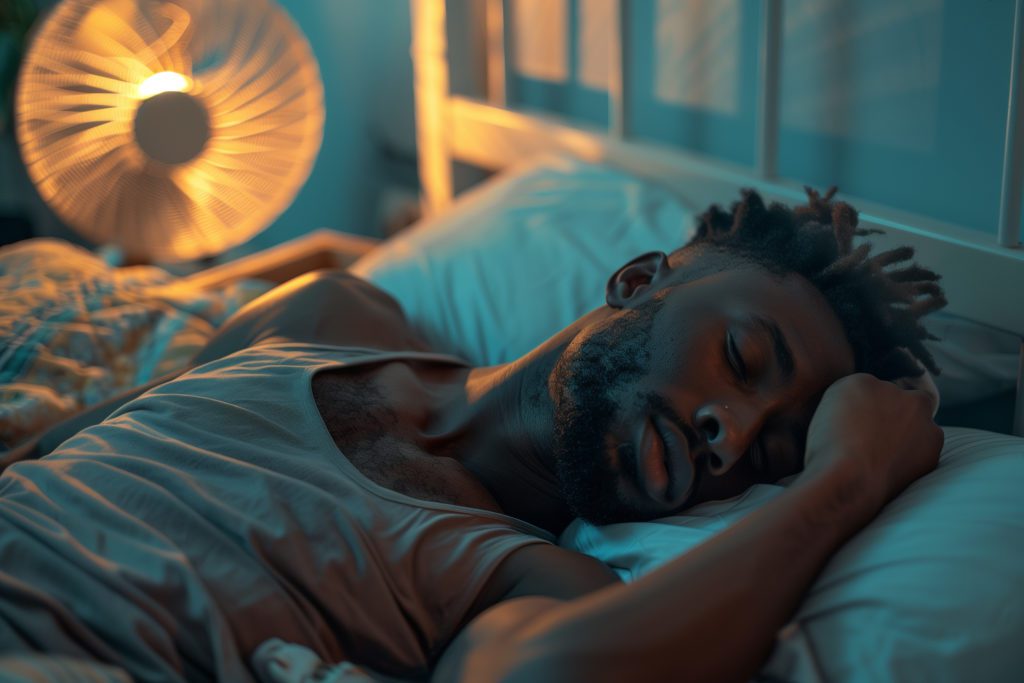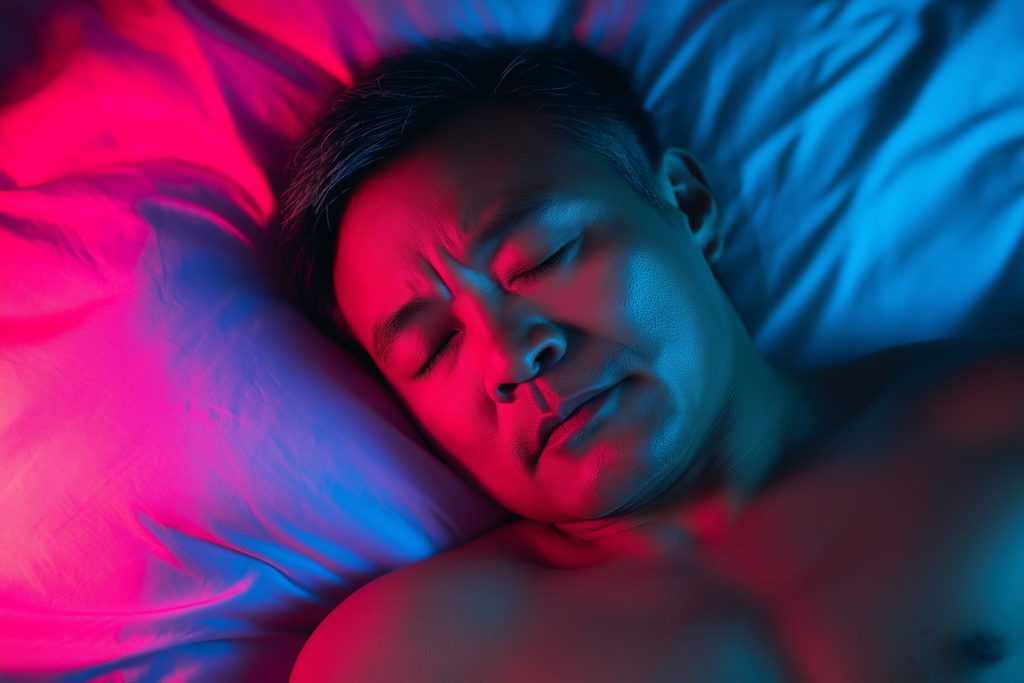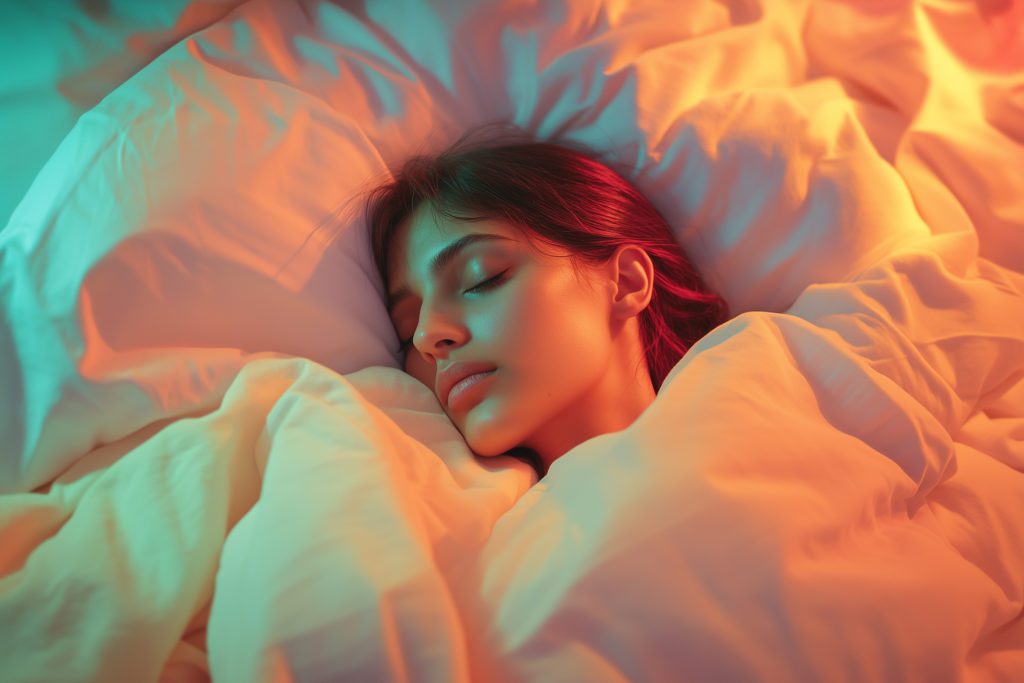
What is the Best Room Temperature for Sleeping?
Discover the ideal room temperature for better sleep, the science behind it, and practical tips to optimize your bedroom environment.

Have you ever woken up in the middle of the night sweating, feeling like you just can’t get comfortable no matter what you do? Fortunately, if you struggle with feeling too hot—or even too cold—at night, then there is a good chance you might not be setting your thermostat right. Many people struggle with sleep, even developing insomnia, but never realize the importance of maintaining a consistent, cool temperature in their bedroom.
In this article, we’ll answer the question that is on your mind: what is the best temperature for sleep? But first, we’ll explore the science of sleep and temperature and why your body needs a certain temperature for sleep, how to find the right temperature for you, and steps you can take to personalize your sleep environment and how to maintain an optimal bedroom setting overnight.
The Science Behind Sleep and Temperature
Humans are like every other mammal on earth: warm-blooded. When we go to sleep, our bodies prepare. That means choosing specific environments so that we remain comfortable—not too hot or cold—and safe from predators. One of the main physiological changes that happen overnight is that our core body temperature drops (Source: PubMed). Now, you might think that being too warm won’t hurt us that much from time to time, but our body’s core temperature actually matters more than you think.
One of the significant insights that researchers have found in some studies is that in optimal conditions, we are able to drop our core temperature so that our body can engage in all the activities it does overnight to support our immunity and our health. However, if it is too warm or too cold, our sleep is disrupted, making it harder for us to self-adjust, protect our bodies, and improve our immunity.
Why Our Body Temperature Matters for Our Sleep
The reason that we need to self-adjust and allow our body to lower its temperature is multifaceted. If we have an abnormal circadian rhythm, then our body temperatures will likely fluctuate and cause us to not get enough sleep. We regulate our sleep and drop our body temperatures because of what it allows our bodies to achieve. Once the skin and brain temperatures change, REM sleep can occur, allowing our bodies to engage in healing, repair, and regulation while we rest (Source: PubMed).
So, when it comes to sleep and temperature, it is crucial that we support our bodies. But what is the best temperature for sleep? Let’s explore that next.
What is the Best Temperature for Sleep?
The goal should be to create a bedroom environment that is cool, dark, and quiet. There is an ideal temperature to strive for that can help you encourage better rest. According to one study, the optimal bedroom should be set to around 17 to 28 degrees Celsius or 62 to 82 degrees Fahrenheit. However, the general consensus is that 16 to 19 degrees Celsius, or 60 to 66 degrees Fahrenheit, is optimal because it can help you lower your body temperature to induce sleep and your body’s recovery (Source: Applied Science).
It might not always be possible to reach a room temperature of 60 to 66 degrees, but if you can get close to this number, you’ll enjoy all the benefits of optimal rest, including allowing your body to fully rest and recover overnight, your brain to process the past day’s events and more. If you are in a room that is too hot or too cold, you’ll know.
Signs Your Room Is Too Hot
If you wake up in the middle of the night in a sweat, feel too restless, and experience poor sleep quality, you might be in a room that is too hot. Other signs that this is the case could be that you spend a lot of your day yawning and grabbing caffeine to fight off the exhaustion you might feel. One study showed that an inability to actually dissipate body heat could be tied to insomnia.
Signs Your Room Is Too Cold
Despite needing a cool place to rest, you can have a room that is too cold. If you find yourself up shivering, uncomfortable, or waking up overnight a few times, then you might be in a room that is too cold. It’s best to turn up that thermostat or grab some more blankets so you can stay nice and warm!
Tips to Find the Right Temperature for Your Sleep
If you’re interested in finding the optimal temperature for you, there are a few factors to consider. You could set your thermostat to 67 degrees and lower it every few nights to see how you sleep, but you might also want to set your temperature based on your age. For adults, 60 to 67 degrees is usually the best range.
However, if you have younger kids at home, this might need to be increased, as toddlers, babies, and kids sleep well between 65 and 70 degrees Fahrenheit. Their bodies are still developing, so they will have a more challenging time staying warmer if the temperature is too cold.
Other strategies you can use to ensure you have the right temperature for sleep include using fans, avoiding caffeine late at night, and sleeping in breathable pajamas. You can even use breathable bed sheets and blankets that can help your body better regulate its temperature for adequate rest. No matter what you choose, make sure you find the right situation that makes you feel most comfortable and well-rested!
Take Steps to Encourage Better Rest and Lower Your Thermostat
It can be tempting to want to save money on bills like electricity, but when it comes to your sleep, lowering the thermostat by a few degrees can give you plenty of benefits. We hope that this article helped you learn something new! What temperature will you try tonight so you can get better rest? We hope you get some quality rest!
FAQ
Do cultural differences influence preferred sleeping temperatures?
Yes, cultural norms and local climates shape temperature preferences. In warmer countries, people may acclimate to slightly higher sleeping temperatures, while those in colder regions prefer cooler rooms. Bedding types and sleepwear choices also reflect cultural adaptations to temperature.
How can I adjust my sleep environment if I share a bed with someone who prefers a different room temperature?
Solutions include using separate blankets, cooling mattress pads, or heated bedding on one side of the bed. Some couples also use temperature-regulating sleep systems or fans to create microclimates, ensuring both partners remain comfortable without disturbing each other's sleep.
How does menopause affect sensitivity to room temperature during sleep?
Menopausal women often experience hot flashes and night sweats, making them more sensitive to room temperature. Keeping the bedroom cool, using breathable bedding, and having a fan or cooling pillow can help manage temperature fluctuations and improve sleep quality.
Do certain mattress types retain more heat and affect sleep temperature?
Yes, memory foam mattresses tend to retain body heat, making sleep uncomfortable in warm conditions. In contrast, innerspring or latex mattresses offer better airflow. Using cooling mattress toppers, moisture-wicking sheets, or gel-infused memory foam can help regulate temperature.
What is the best way to track if my room temperature is affecting my sleep?
Using a smart thermostat, sleep tracker, or temperature-monitoring device can help track fluctuations in room temperature. Keeping a sleep journal and noting how well you sleep at different temperatures can also help determine your ideal sleeping environment.
Can room temperature affect melatonin production?
Yes, cooler temperatures support the body's natural melatonin production, which helps regulate sleep. A room that’s too warm can interfere with this process, making it harder to fall asleep and stay asleep. Keeping the room cool can enhance melatonin release and improve sleep quality.

Written by
Marie Soukup
Marie Soukup is a seasoned copywriter, editor, and Integrative Nutrition Health Coach with a certificate from the Institute of Integrative Nutrition (IIN). With years of experience working with brands across diverse industries, Marie is passionate about holistic health and crafting compelling content.
Download Pillow
Get help
Press & News
Legal
Connect
X (Twitter)
Company
Copyright © Neybox Digital Ltd.



